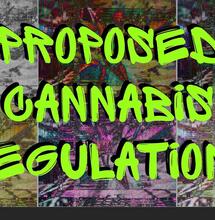Browne warns of modern cannabis

The increased strength of modern cannabis means that it is a less easy choice to decriminalise the drug now than it would have been 20 years ago, Home Office Minister Jeremy Browne has said.
The increased strength of modern cannabis means that it is a less easy choice to decriminalise the drug now than it would have been 20 years ago, Home Office Minister Jeremy Browne has said.
The more potent forms of the drug, now commonly grown in the UK rather than imported from areas such as north Africa, have led to "quite profound mental health problems" for frequent users, the minister said.
Mr Browne also indicated that the social harms caused by weekend drug users required a different response from the Government to the way that problems associated with heroin addicts are tackled.
The Home Office is currently undertaking a detailed study of how other countries deal with illegal drugs, including forms of decriminalisation.
Crime prevention minister Mr Browne has been sent to countries such as Portugal, which has "depenalised" small-scale possession, to gather evidence on what works.
But Mr Browne said that the traditional "liberal" approach to cannabis may not apply now as a result of the changes in the strength of the drug, comparing it to the difference between a pint of ale and a pint of neat vodka.
He said: "What people who favour more liberalised drugs laws have traditionally said is that ‘the way you show that you are wanting to go a notch down the liberal scale is to talk about liberalising or at least decriminalising cannabis'.
"That shows that ‘I'm not so permissive or libertarian that I think all drugs should be legalised, but I am a more relaxed, modern person than those people who want to ban everything and that is why I'm in favour of cannabis being legalised' - and people who were young in the 1960s say that a lot.
"The reason I am a bit cautious about that is because the type of cannabis being consumed in this country is radically different from the 1960s, even radically different from 10 years ago.
"Ten years ago most cannabis consumed in the country was imported from north Africa, now the overwhelming majority of cannabis consumed in this country is in leaf form rather than resin form and is home grown."
He said the drug was grown indoors in houses or warehouses "l ike flowers are grown in the Netherlands".
Mr Browne told activists at the Liberal Democrat conference in Glasgow: "It is much, much stronger, it is about seven or eight times stronger than the cannabis people grew in the 1960s. So it is a magnitude of strength of the difference between having a pint of real ale and a pint of neat vodka.
"They are both alcoholic drinks and it is legal for you to drink either of those, but I don't think anyone would pretend that there aren't health harms associated with the latter that don't apply with the former.
"There is quite a lot of growing evidence that consuming high strength cannabis on a regular basis creates quite profound mental health problems for quite significant numbers of people.
"People may still take the view they take about the legal status of drugs and they may be very libertarian or they may be less libertarian.
"But I just (think), even as somebody who is instinctively myself in favour of a liberal, free personal choice agenda, that it feels like quite a default, easy choice to make about cannabis legislation.
"I think it probably was an easier choice to make 20 years ago than it is now and actually some of the health issues now should be taken more seriously than then."
The Lib Dem minister also said the changing nature of drugs use in the UK would require a different response.
He said: " A lot of the drugs which have traditionally caused most public anxiety, where people would most feel alarmed if they felt their children were taking those drugs - heroin, crack cocaine - there is a definite fall, year on year fall, in the addiction to and consumption of those drugs.
"And the average age of people taking them is getting older and older, suggesting that fewer young people are flowing in at the beginning of the supply chain - some are, but fewer. It's a very important and positive development.
"But there is a separate issue about club drugs, about the type of drugs people are taking. The so-called legal highs but also that blurred area of hallucinogenic drugs that are not legal, that people aren't taking in a traditional ‘addict' way.
"They may only take them on Fridays and Saturdays, plus some additional drugs to try and get them in a position where they feel able to go to work again on Monday morning.
"Then they might not take drugs through the week at all. There are quite a lot of social harms that are coming out of those types of drug consumption as well and they are some different social harms to the kind of social harms which people have become familiar with through, for example, heroin addiction. It may require different policy responses so it's a sort of multi-faceted issue.
"There isn't a (single) drugs problem which requires a (single) drugs policy to deal with it."
http://www.thisisguernsey.com 15/09/2013



